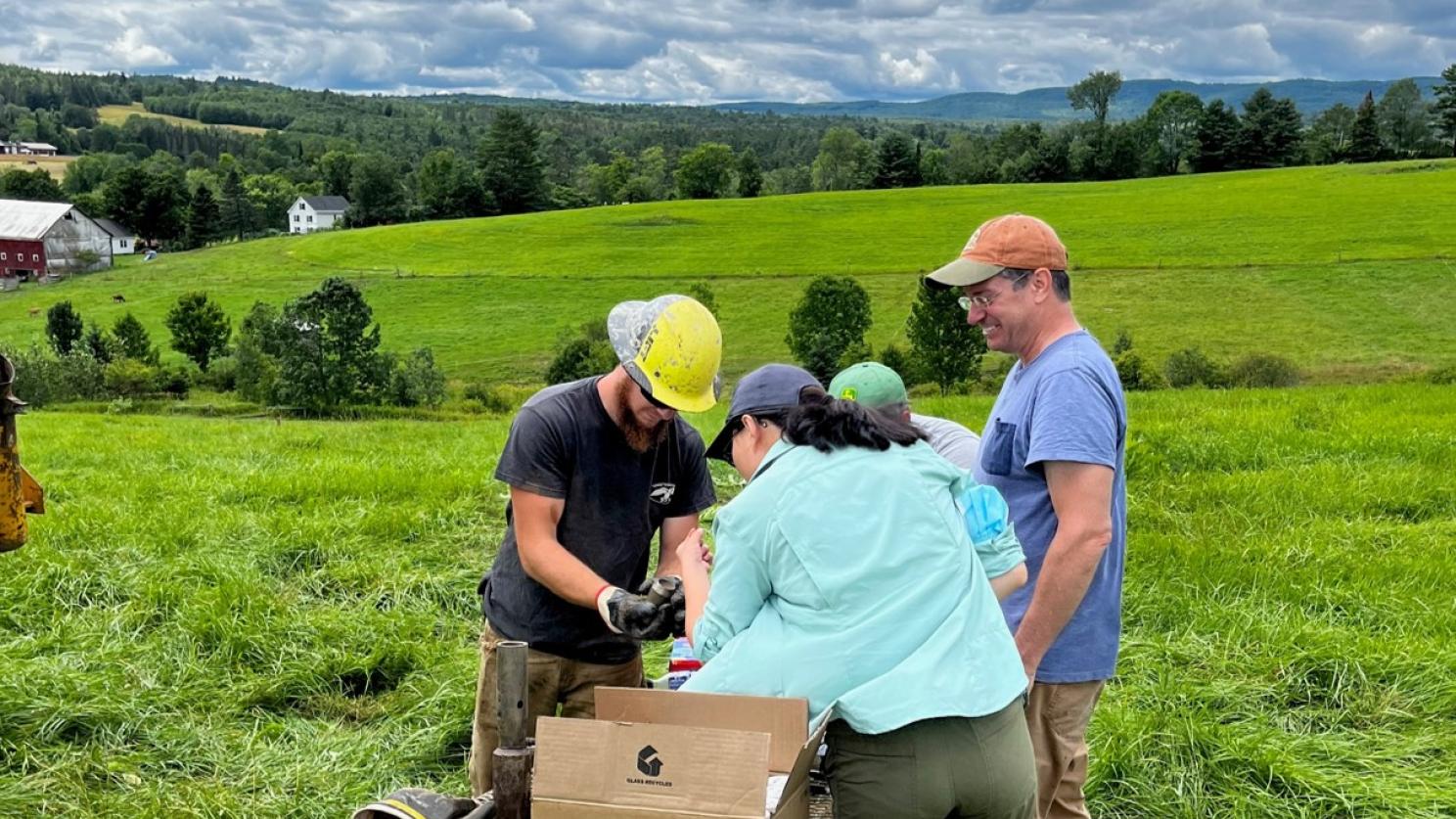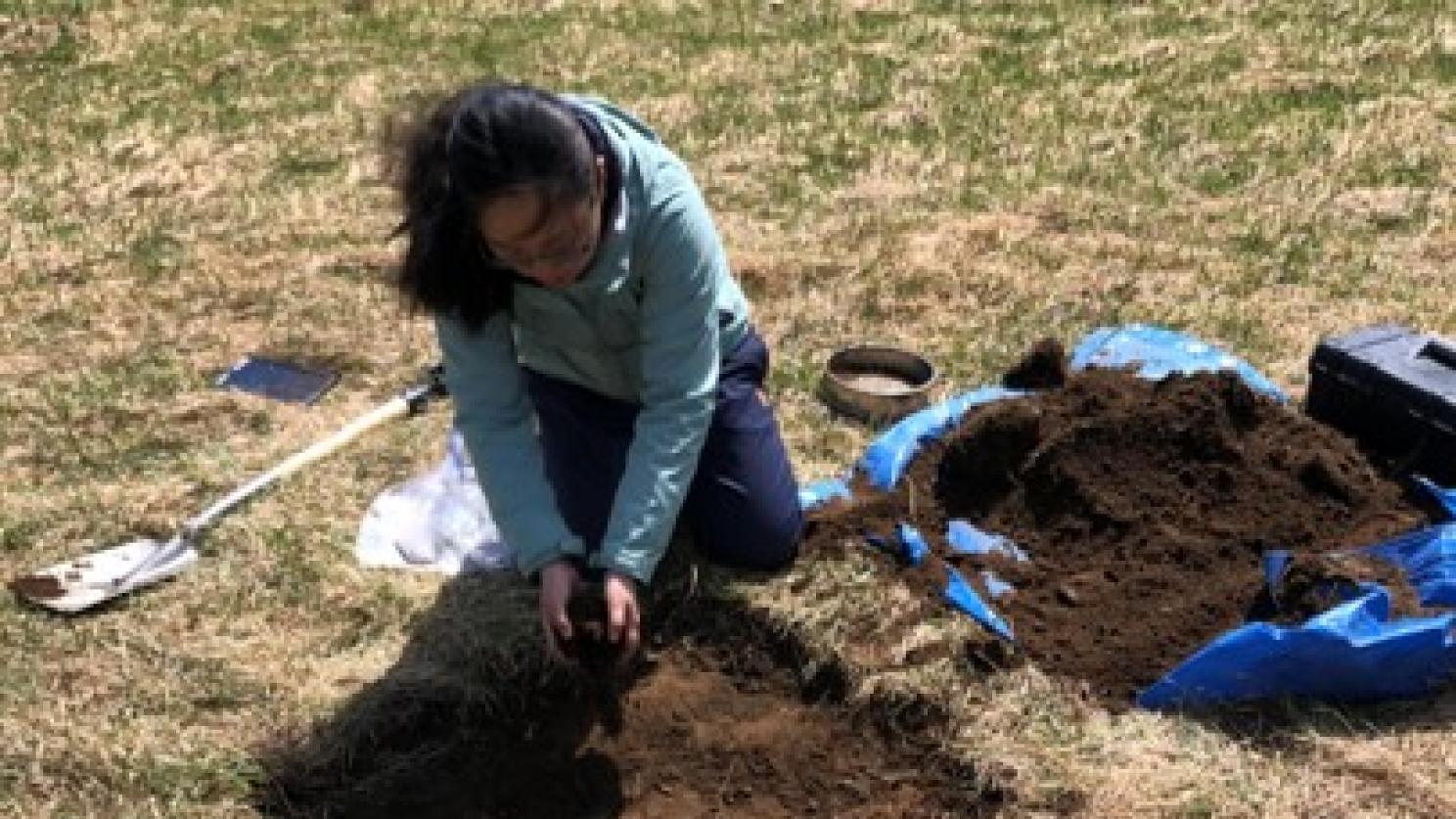The power of soil
Healthy soil is a superhero in the fight against climate change. As a critical carbon sink, it acts as a natural reservoir, absorbing and storing more carbon dioxide (CO2) from the atmosphere than it releases. Forests, wetlands, and mangroves are all carbon sinks as well, and their protection is more crucial than ever.
At the Yale Center for Natural Carbon Capture (YCNCC), the faculty view soil as a primary pathway for long-term carbon sequestration. Agricultural practices today include the use of crushed rock, such as limestone, to neutralize acidic soil. Unfortunately, this process releases CO2 into the atmosphere.

Today, researchers at Yale are spreading finely ground basalt as a soil amendment to croplands through various field studies to understand it’s impact on the crops, the soil, and the downstream water systems.
What makes enhanced rock weathering (ERW) an attractive carbon capture option?
ERW has multiple co-benefits, including raising soil pH (thereby reducing soil acidification), increasing crop yields, and reducing reliance on chemical fertilizers. Even more promising is the potential of new revenue streams for agricultural landowners, including cropland owners, from selling credits for the tons of CO2 captured through the carbon marketplace.
Application of basalt to agricultural lands for ERW is readily scalable with existing mining operations and farming practices in place. Estimates show the U.S. Midwest alone has the potential to sequester 1.5-2 million tons of CO2 annually, approximately the equivalent of emissions from the aviation sector.
How will communities benefit from improved soils and natural carbon capture?

A critical component of the research into ERW is understanding both the economic and environmental impacts on local communities. Soil health is a critical priority for farmers, and sound, proven research is required to effectively engage the farming community in adopting these new techniques for carbon capture.
Communities could also benefit from increased farming-related revenue through the sale of carbon credits. To accomplish this, Yale and global stakeholders in the voluntary carbon market are committed to gathering the necessary data in field studies before looking to scale, critical to the integrity of the carbon credits.
How does the YCNCC’s work to improve soils and advance ERW support our 2040 carbon neutral operations goal?
As part of our goal to achieve carbon neutral operations by 2040, FedEx helped establish the Yale Center for Natural Carbon Capture in 2021. Our $100 million commitment has helped fuel a pipeline of groundbreaking research, like ERW, to develop natural solutions for capturing carbon at scale.
This commitment is consistent with our principles to: 1) Decarbonize what’s possible, 2) Co-create with purpose, and 3) Neutralize what’s left. These principles cover the comprehensive actions needed to not only achieve carbon neutrality in our own operations, but also to support the transition of the transportation and logistics industry.
For a deeper dive into the YCNCC, visit their 2024 Annual Report: YALE 2024 YNCC Annual Report Public.pdf
